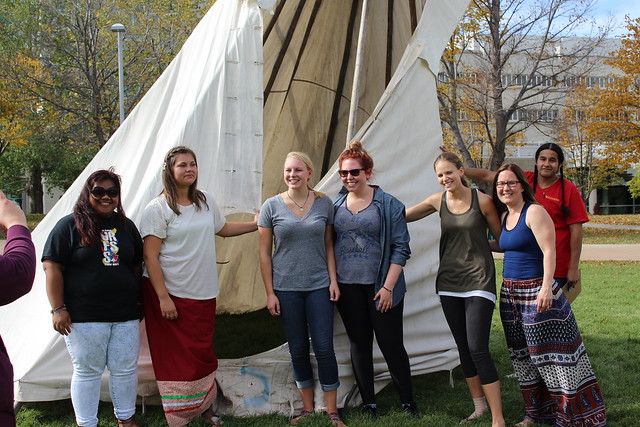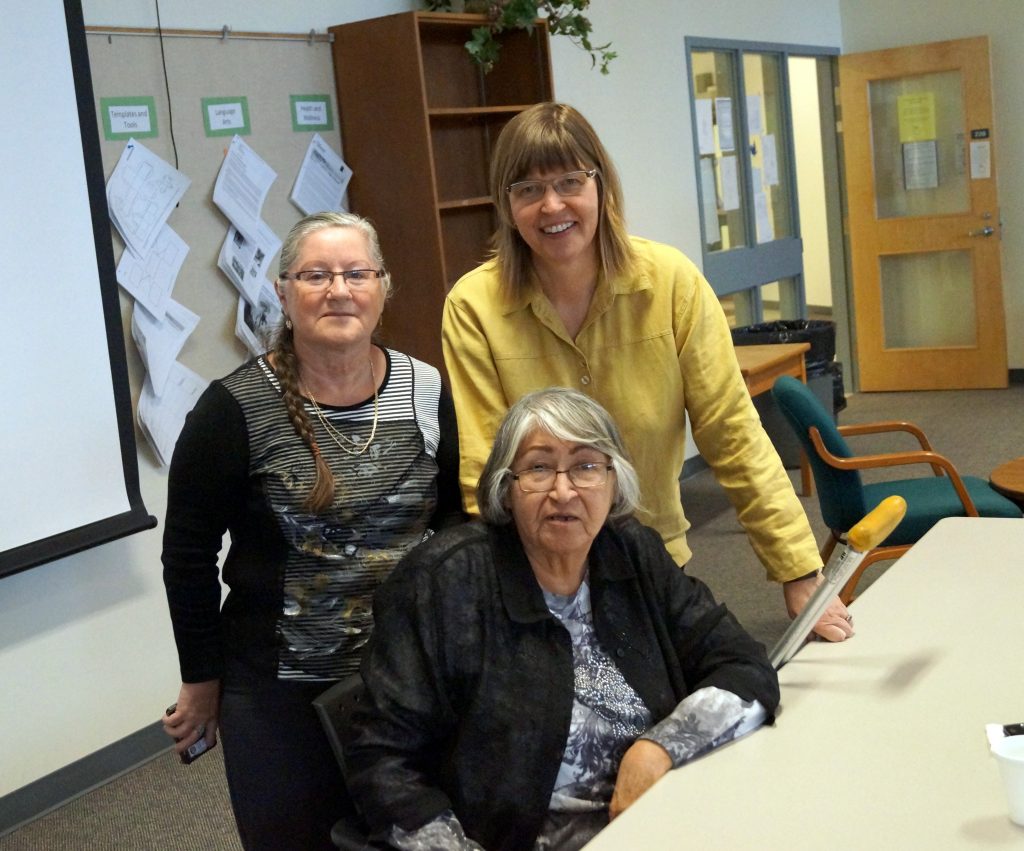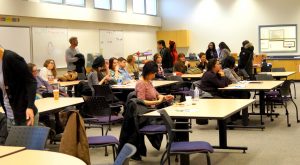As part of their course work for ECCU 300 – Cross Cultural Teaching Strategies, with instructor Brenna Pacholko, SUNTEP students Rebecca Wiens and Lesley Hanson presented “TRC Recommendations: Indigenization Within Education” today in the Aboriginal Student Centre at the University of Regina.
Wiens grew up in a predominantly White town, where she did not learn about her Métis heritage and Hanson is from Sakimay First Nations, but was born and raised in Moose Jaw, and is closely acquainted with Indian Residential School (IRS) impacts, with a mother, grandmother, and great grandmother all having spent time in residential school. “If I was born fifty years earlier, it could have been me,” she says.
The two presenters outlined the work that the Truth and Reconciliation Commission is doing, what the focus will be (truth AND reconciliation), and why it is important to Canadians, receiving feedback from the group about why it is important “to me.” Hanson shared that even though she didn’t attend a residential school, she still feels the impacts of the IRS: “The impact of residential school whether alcoholism, depression, or mental illness…hits home with me and my family.” Impacts are intergenerational, as survivors attempt to cope with their residential school experiences. A participant pointed out that so often people think that the impacts are only felt by Aboriginal people, but non-Aboriginal people are also impacted, whether they know it or not.
Hanson and Wiens then showed an excerpt from the TED talk given by Starleigh Grass:
Starleigh encourages listeners to follow two hashtags on Twitter: #myreconciliation and #readthetrc
From the Truth and Reconciliation Calls to Action for Education and Reconciliation, Hanson and Wiens read Recommendations 62, 63, 64, and 65:
62. We call upon the federal, provincial, and territorial governments, in consultation and collaboration with Survivors, Aboriginal peoples, and educators, to:
i. Make age-appropriate curriculum on residential schools, Treaties, and Aboriginal peoples’ historical and contemporary contributions to Canada a mandatory education requirement for Kindergarten to Grade Twelve students.
ii. Provide the necessary funding to post-secondary institutions to educate teachers on how to integrate Indigenous knowledge and teaching methods into classrooms.
iii. Provide the necessary funding to Aboriginal schools to utilize Indigenous knowledge and teaching methods in classrooms.
iv. Establish senior-level positions in government at the
assistant deputy minister level or higher dedicated to
63. Aboriginal content in education.63. We call upon the Council of Ministers of Education, Canada to maintain an annual commitment to Aboriginal education issues, including:
i. Developing and implementing Kindergarten to Grade Twelve curriculum and learning resources on Aboriginal peoples in Canadian history, and the history and legacy of residential schools.
ii. Sharing information and best practices on teaching curriculum related to residential schools and Aboriginal history.
iii. Building student capacity for intercultural understanding, empathy, and mutual respect.
iv. Identifying teacher-training needs relating to the above.
64. We call upon all levels of government that provide public funds to denominational schools to require such schools to provide an education on comparative religious studies, which must include a segment on Aboriginal spiritual beliefs and practices developed in collaboration with Aboriginal Elders.
65. We call upon the federal government, through the Social Sciences and Humanities Research Council, and in collaboration with Aboriginal peoples, post-secondary institutions, and educators, and the National Centre for Truth and Reconciliation and its partner institutions, to establish a national research program with multi-year funding to advance understanding of reconciliation.
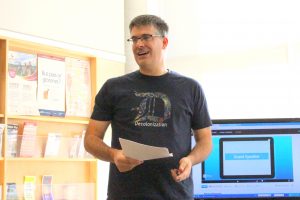
Then, Dr. Michael Cappello, guest speaker, offered a White settler perspective on the importance of the TRC Recommendations. Cappello says, “There are lots of ways our histories interweave: Stories are far beyond ‘us and them,’ and there are lots of reasons to take the TRC recommendations seriously.”
Cappello points out that the role of non-Aboriginal people is at the very least the role of witness: to attend, to serve, to witness, and to be present. Further, it is important that non-Aboriginal people educate themselves. “Everything that I know about racism comes from marginalized groups,” says Cappello. He does not think the burden of educating White settlers should be placed on Aboriginal peoples. At most, the White settler’s role is as a junior partner: “Our job is to listen and to respond, ‘Ok, here is Recommendation # 62; how should we do that?…’ White settler’s are not the leaders in this TRC project. I know my role, to legitimize, and I should be committed to doing,” he says.
“It is my place to honor Indigenous cultures, but not my place to teach Indigenous culture,” Cappello says. “Learning is not something that is completed by taking a course; it is a life’s work.” Cappello mentions Dr. Shauneen Pete’s 100 Ways to Indigenize and Decolonize Academic Programs and Courses as a resource. What Cappello focuses on in his teaching is confronting racism. “This is also a life long work, unlearning the racism that I grew up with,” he says. Cappello handed out a copy of what the Faculty of Education, University of Regina is doing to respond to the TRC recommendations.
Cappello emphasized the need to read the TRC. “If you are bored of reading on white paper, then listen to the TRC, which has been recorded on Youtube with Indigenous people reading the TRC in 8-minute segments.” (The first one is embedded below.)
In the final part of the presentation, Hanson and Wiens discuss the Saskatchewan Urban Native Teacher Education Program (SUNTEP) and mission, and how their classroom is indigenized, set up in a circle around the medicine wheel, along with Métis symbols in the classroom such as the Métis flag, Louis Riel, the Red River Cart, the Métis sash, and Michif language. Their program includes building relationships with each other, faculty, staff and elders; Indigenous perspectives; opportunities for learning Michif; and jigging. Though not directly stated, it is clear that the SUNTEP program is uniquely positioned in that it is already modeling the TRC Recommendations.
The presenters ended the presentation with a final question about the value of SUNTEP. Russell Fayant, a SUNTEP instructor, noted that along with the other suggestions (good foundation for teachers, educating next generation about their culture, and a way to decolonize), “SUNTEP has helped to produce a Métis middle class and activism is a privilege of the middle class.”
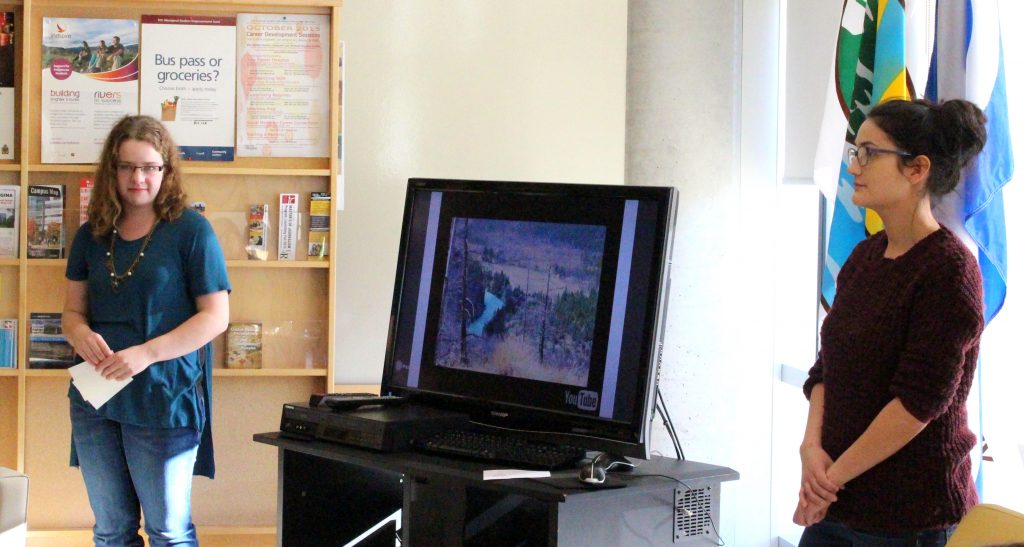
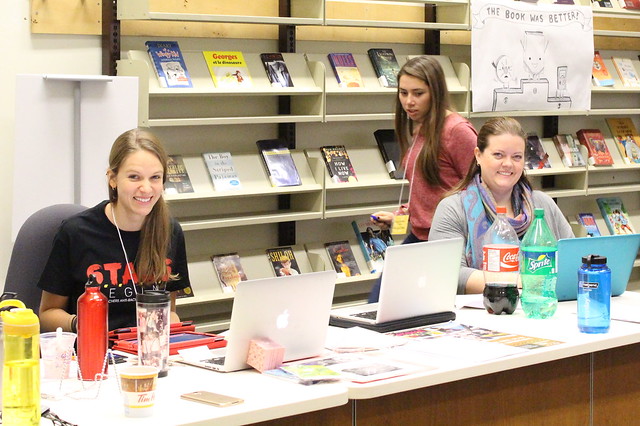
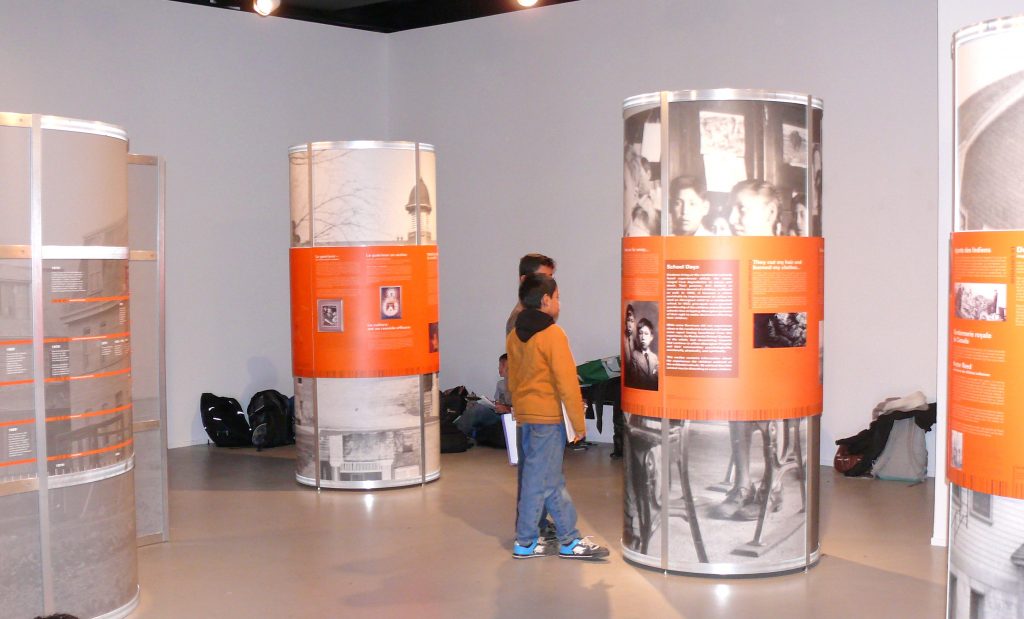
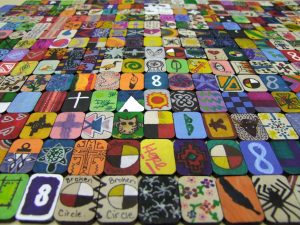

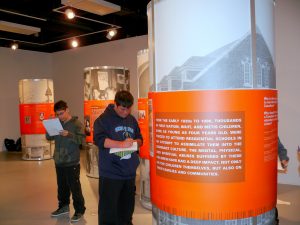
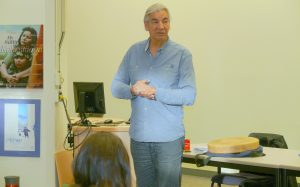
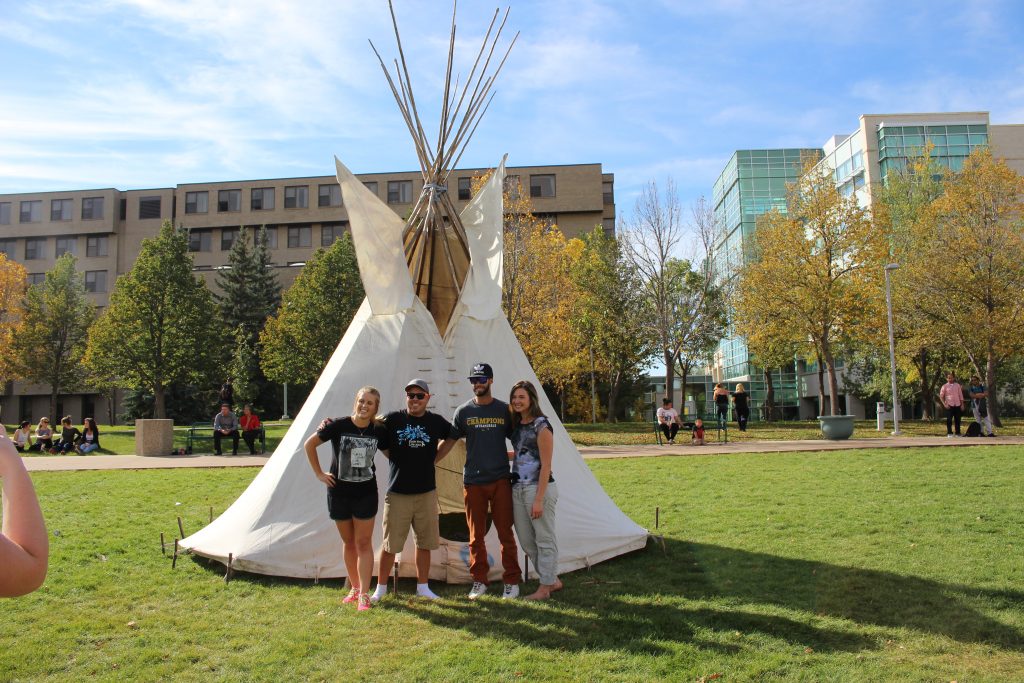 Two Faculty of Education teams (the UR STARS–Student Teachers Anti-Racist/Anti-Oppressive Society–and the Middle Years students) participated in the Annual Glen Anaquod Memorial Tipi Raising Competition in September. The Middle Years team won their heat with a time of 16:01. This event provided an opportunity for students to participate in a cultural learning experience that they will be able to pass on to their students in the future. Photo: (L-R) Middle Years team: Amanda Koback, Mike Zylak, Cat Todorovich, Megan Rilling.
Two Faculty of Education teams (the UR STARS–Student Teachers Anti-Racist/Anti-Oppressive Society–and the Middle Years students) participated in the Annual Glen Anaquod Memorial Tipi Raising Competition in September. The Middle Years team won their heat with a time of 16:01. This event provided an opportunity for students to participate in a cultural learning experience that they will be able to pass on to their students in the future. Photo: (L-R) Middle Years team: Amanda Koback, Mike Zylak, Cat Todorovich, Megan Rilling.